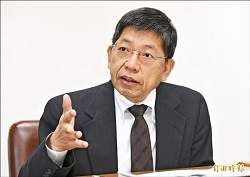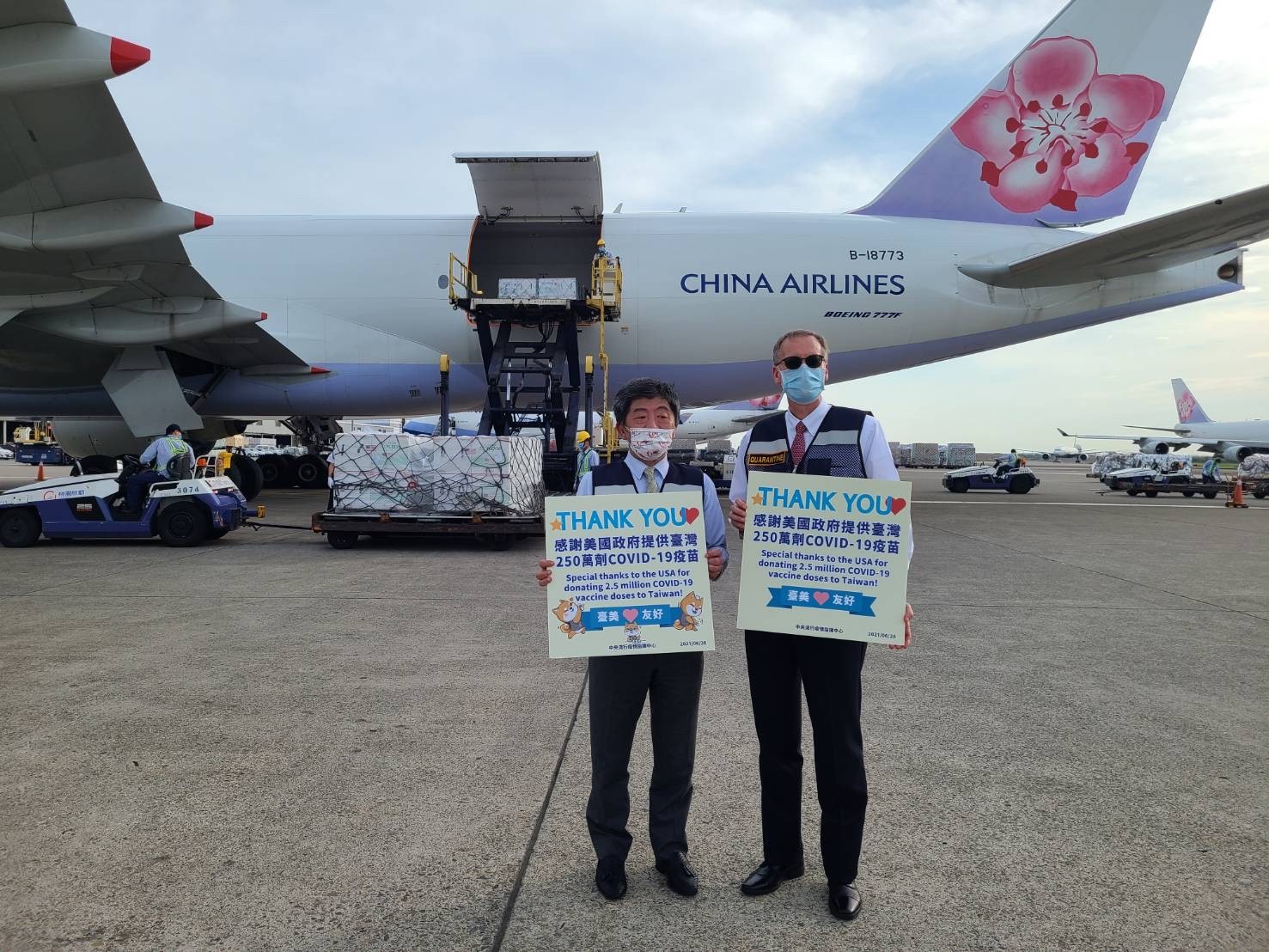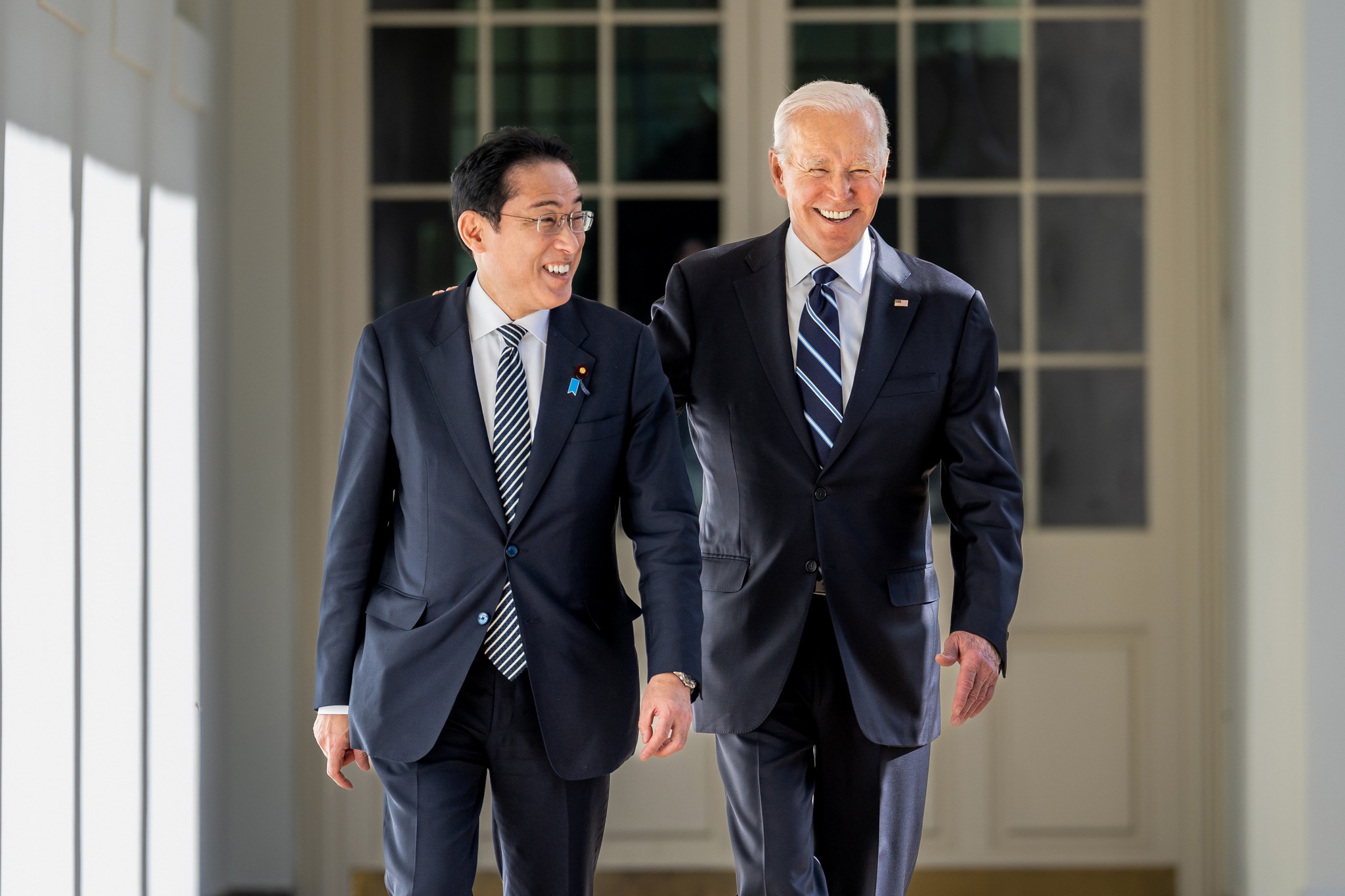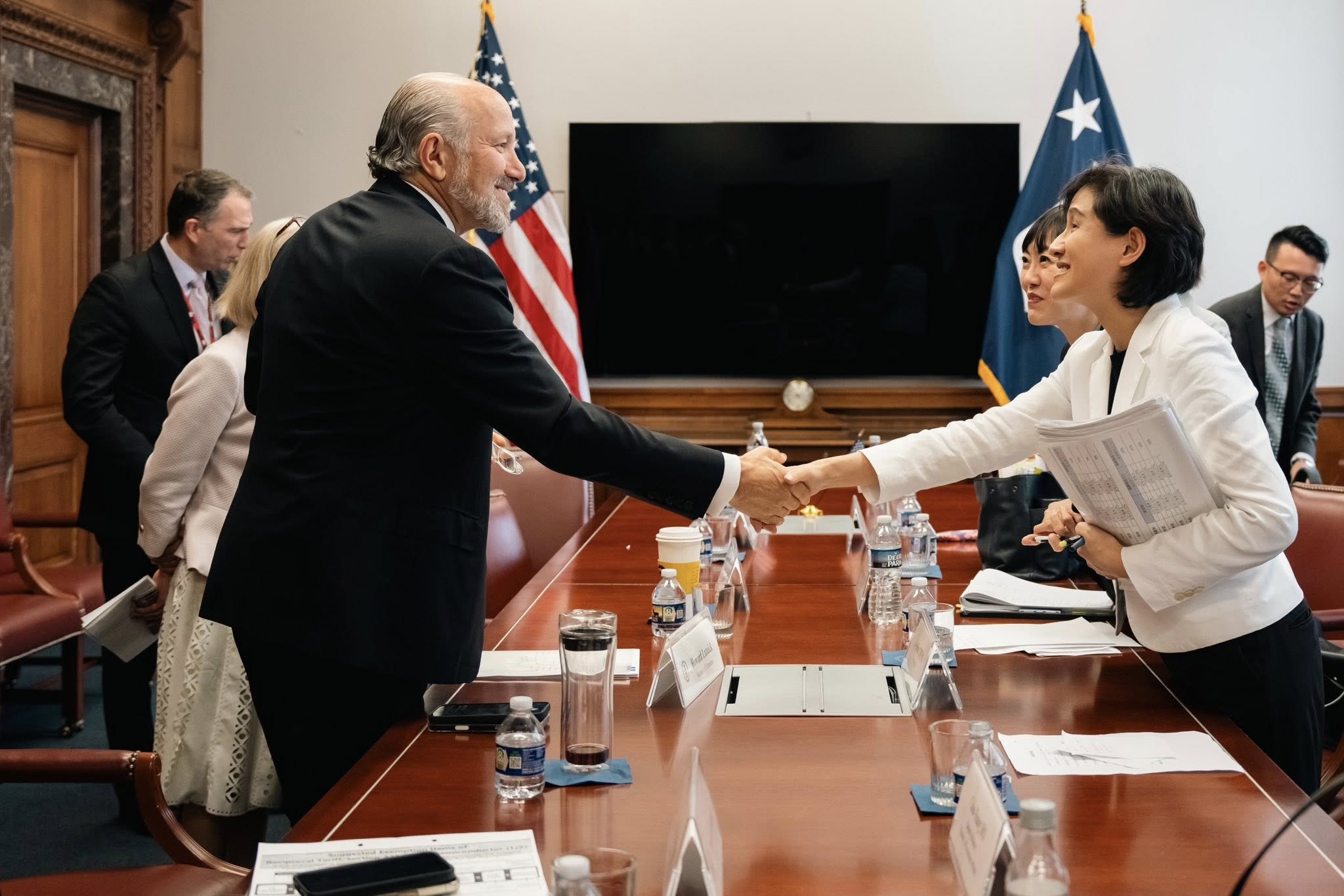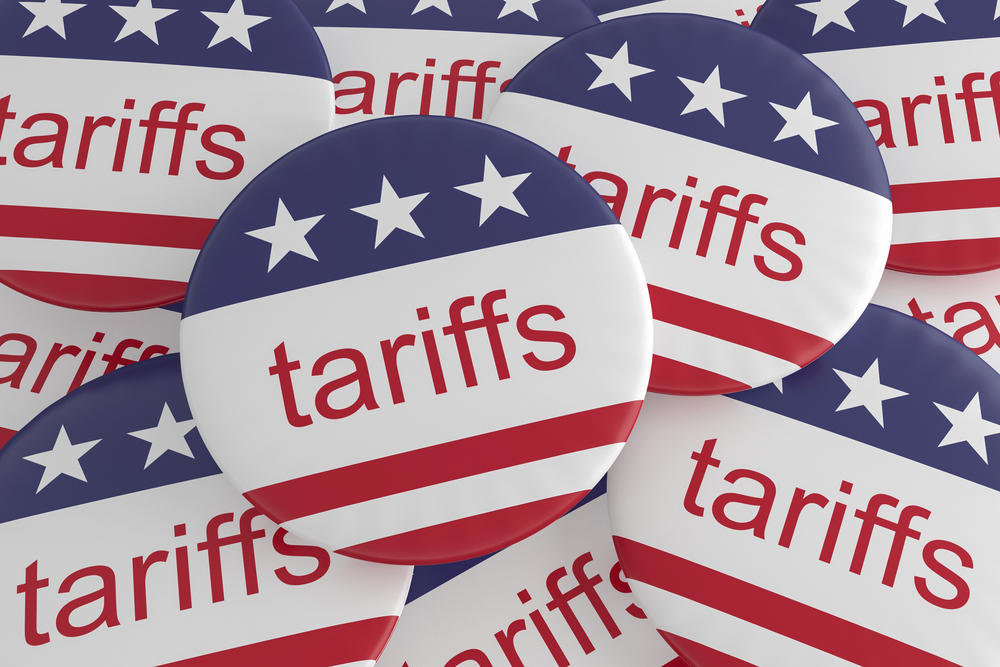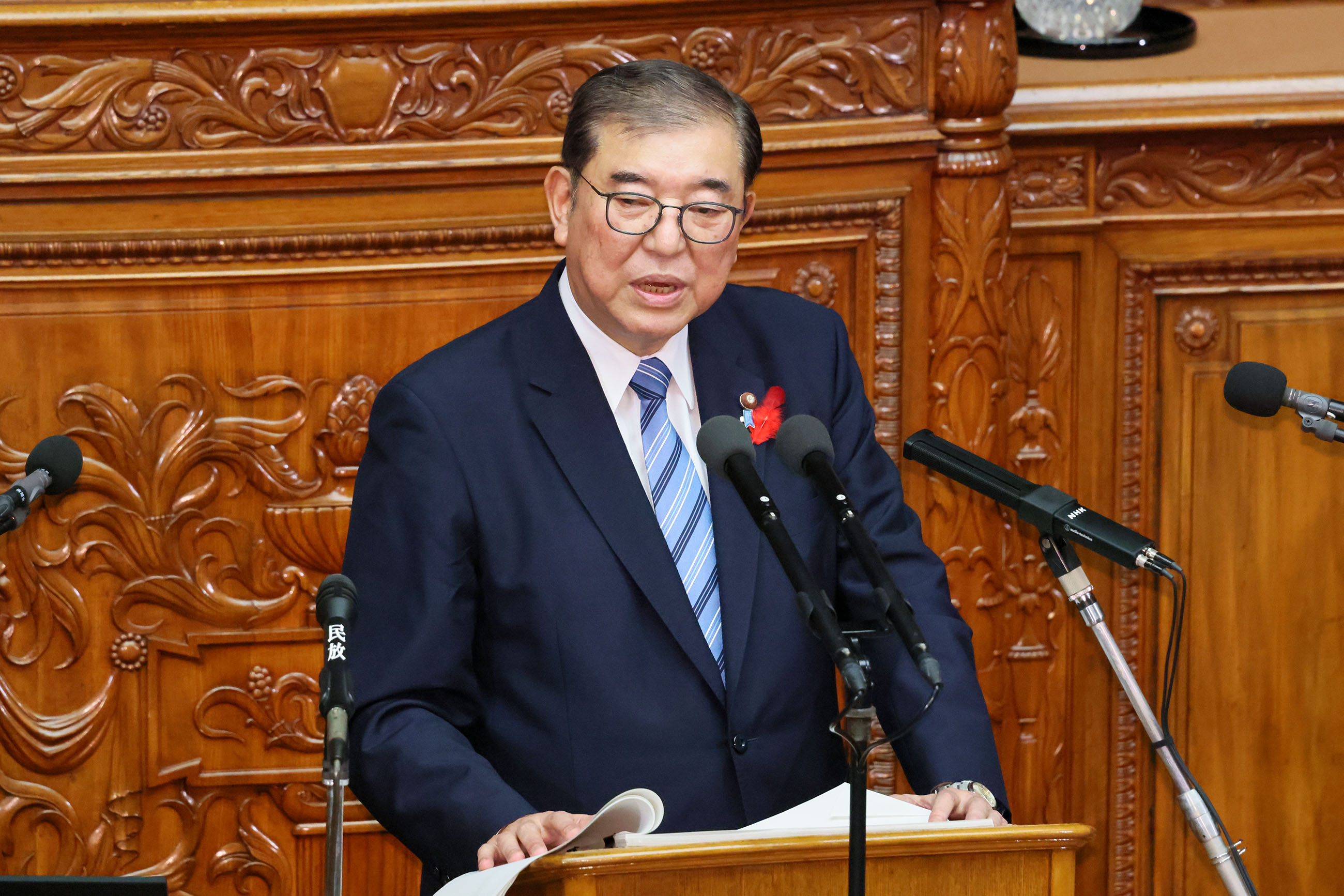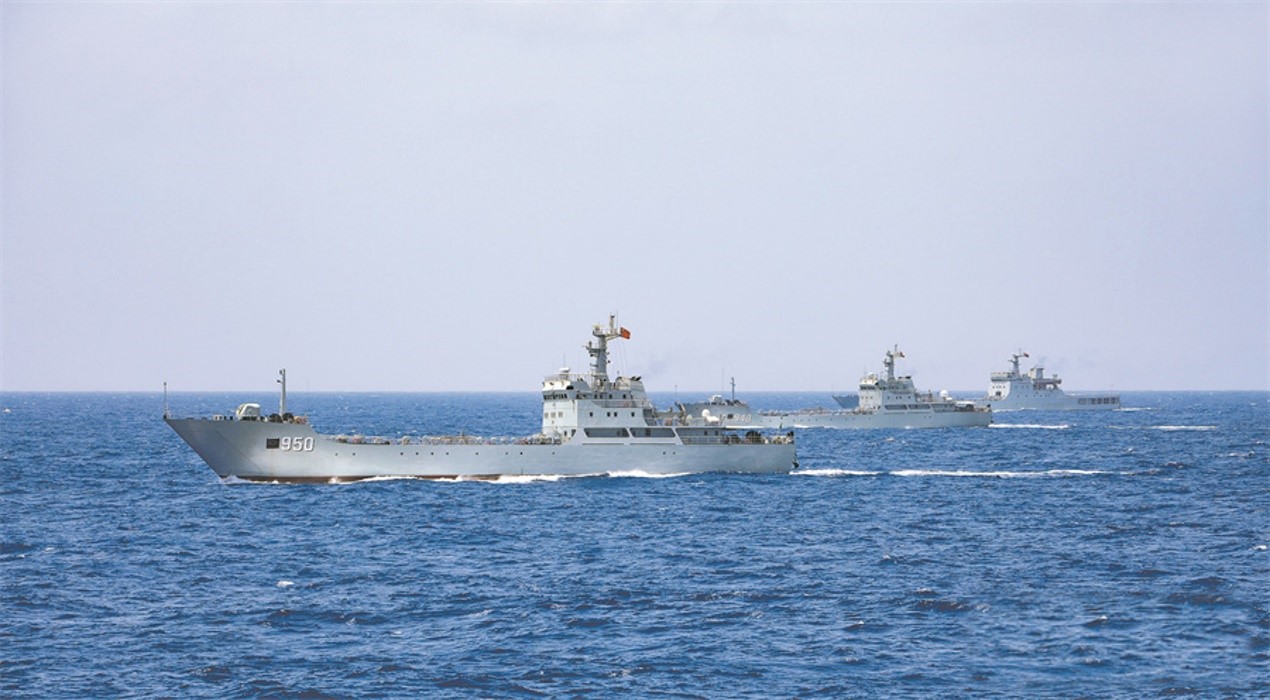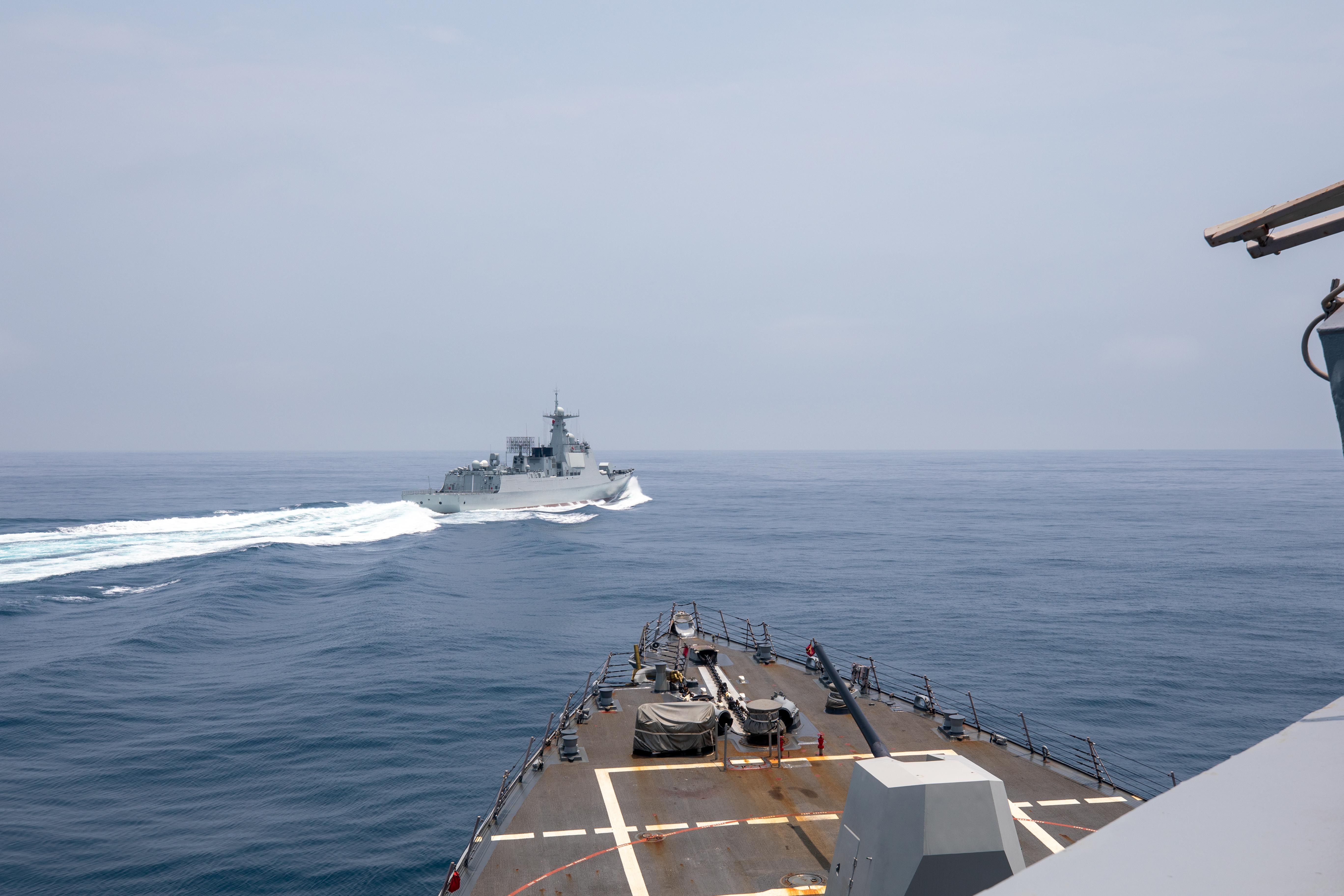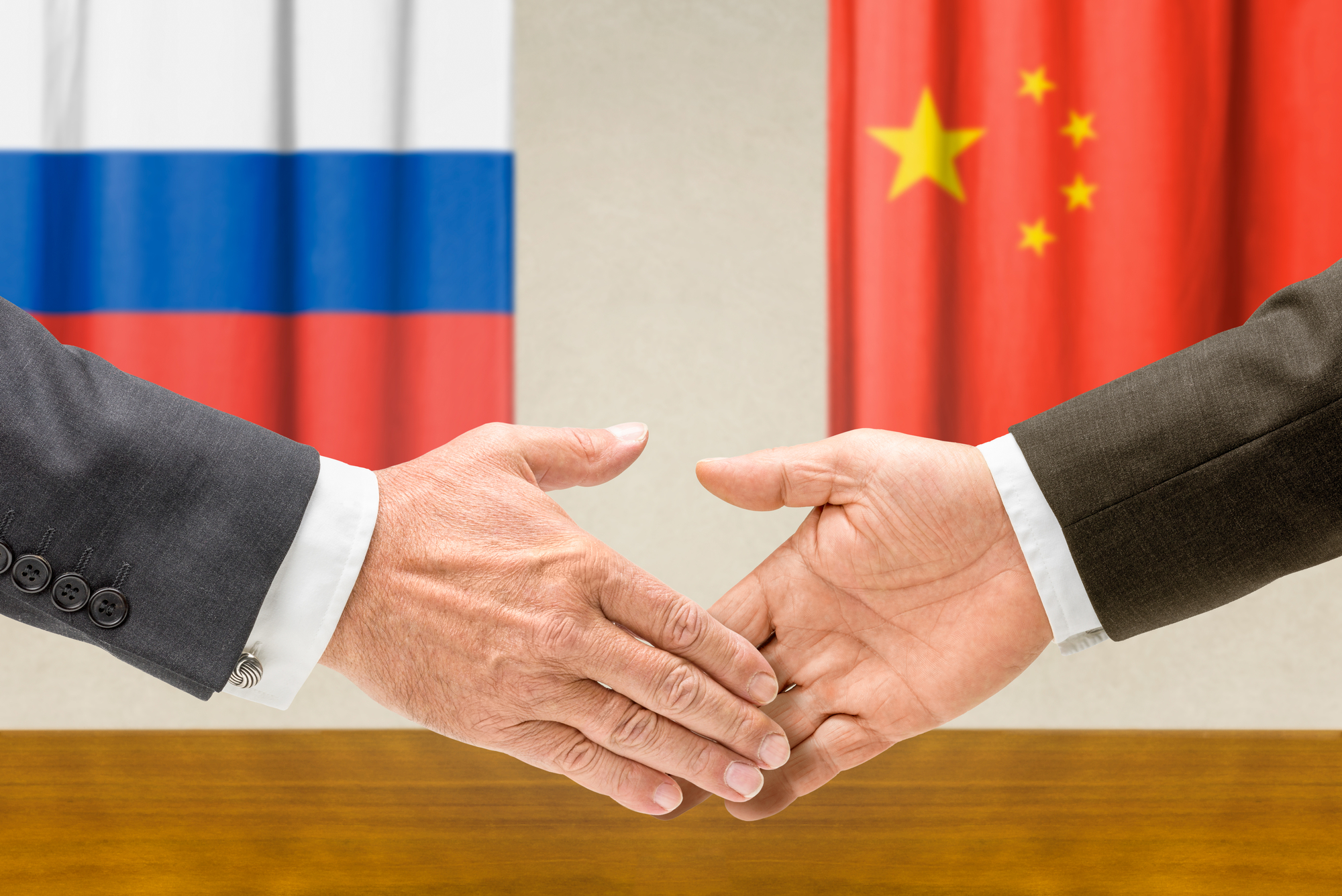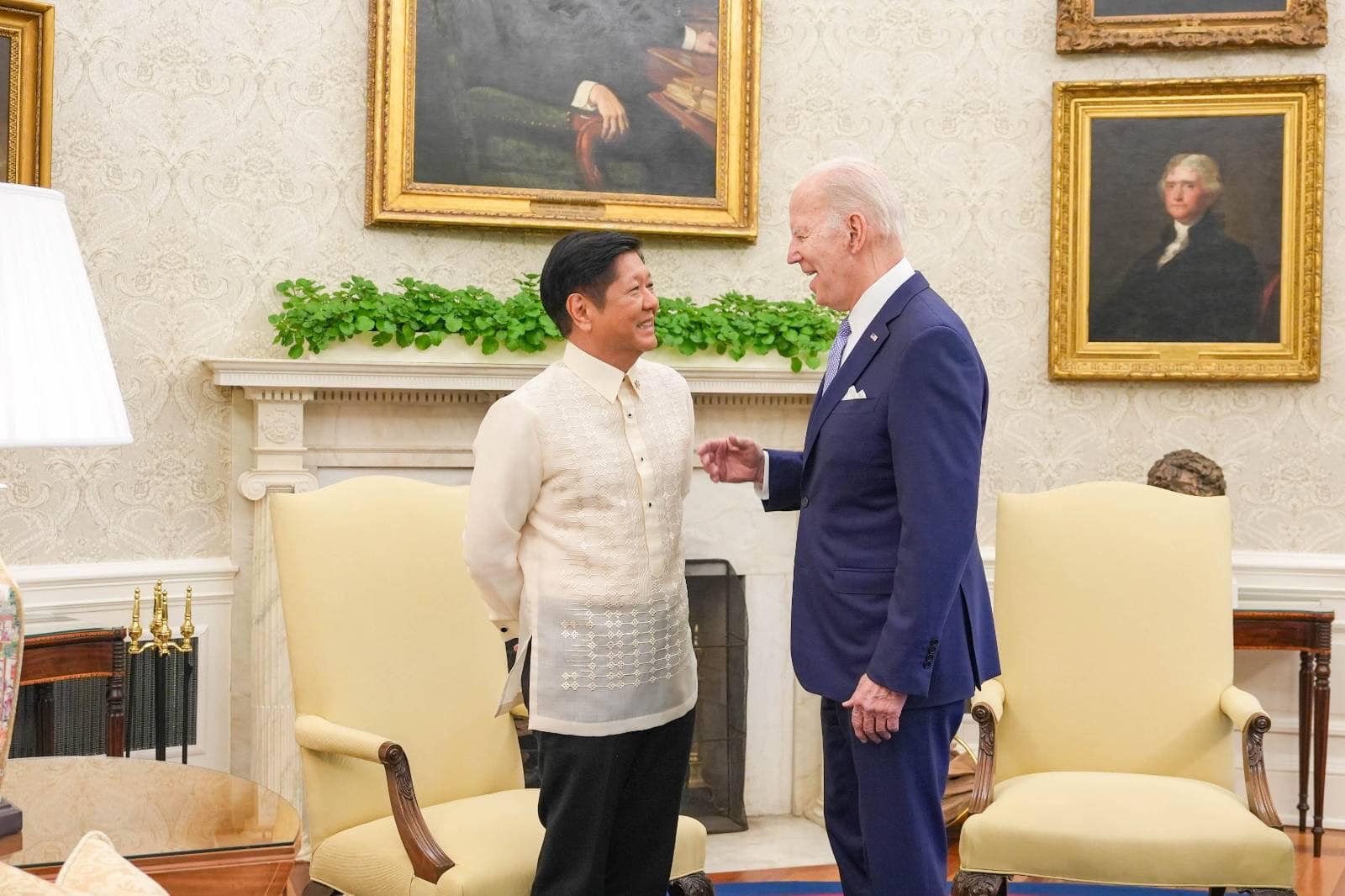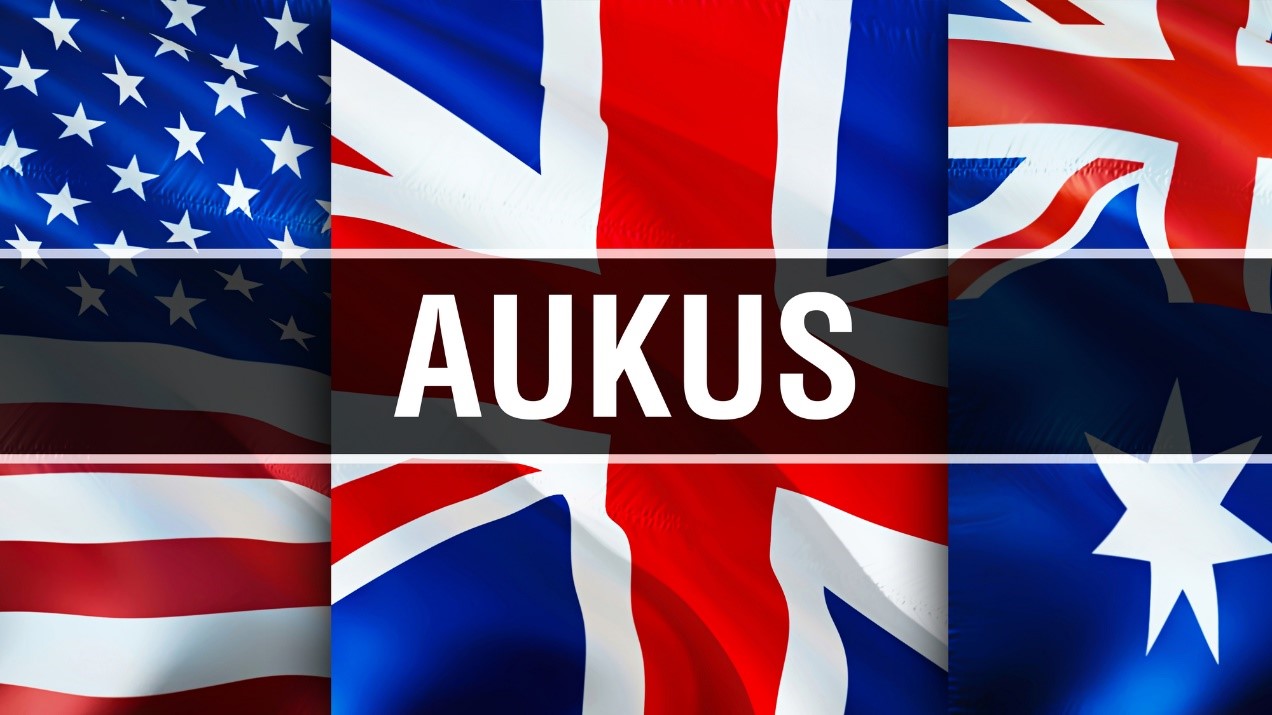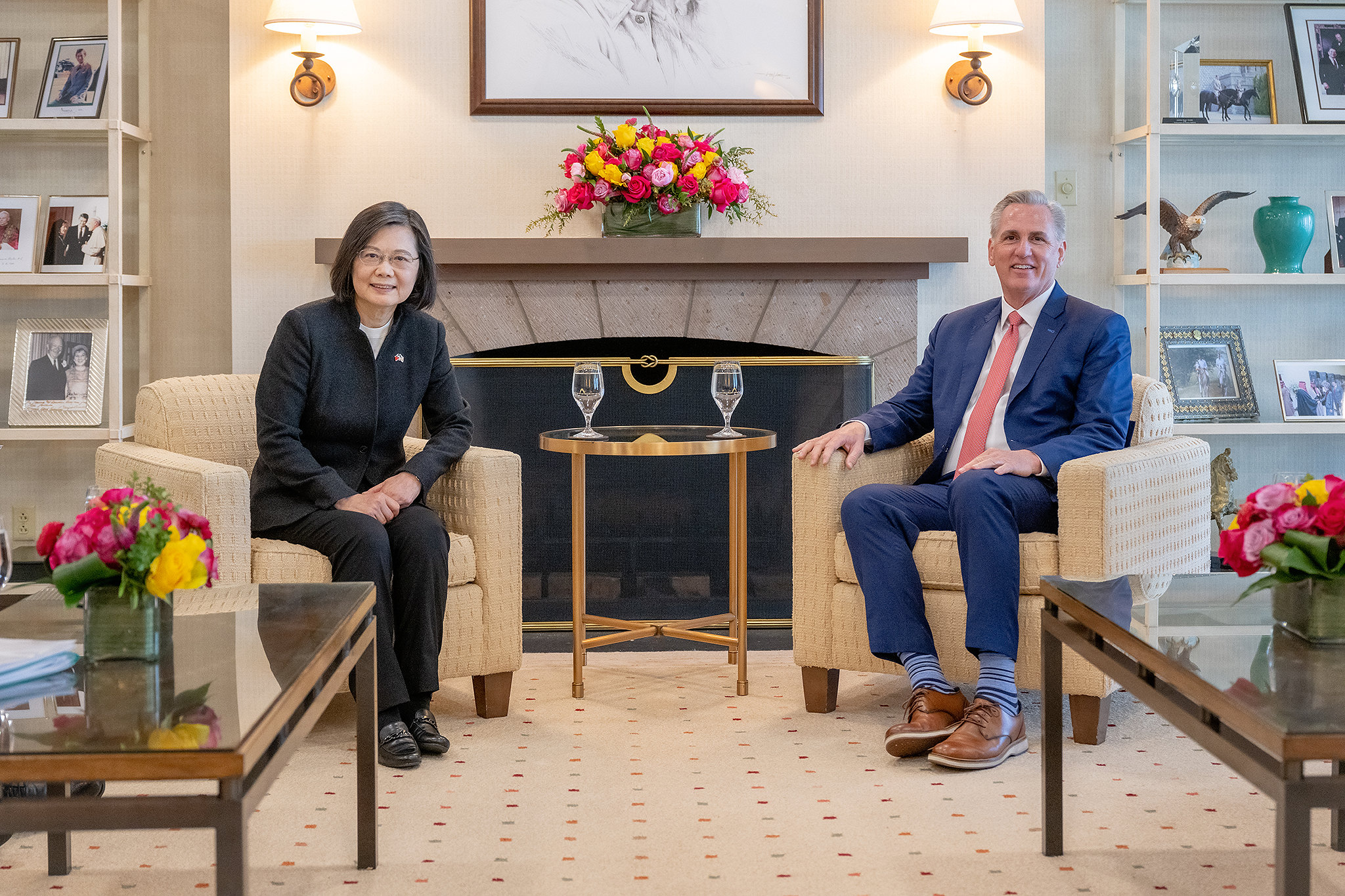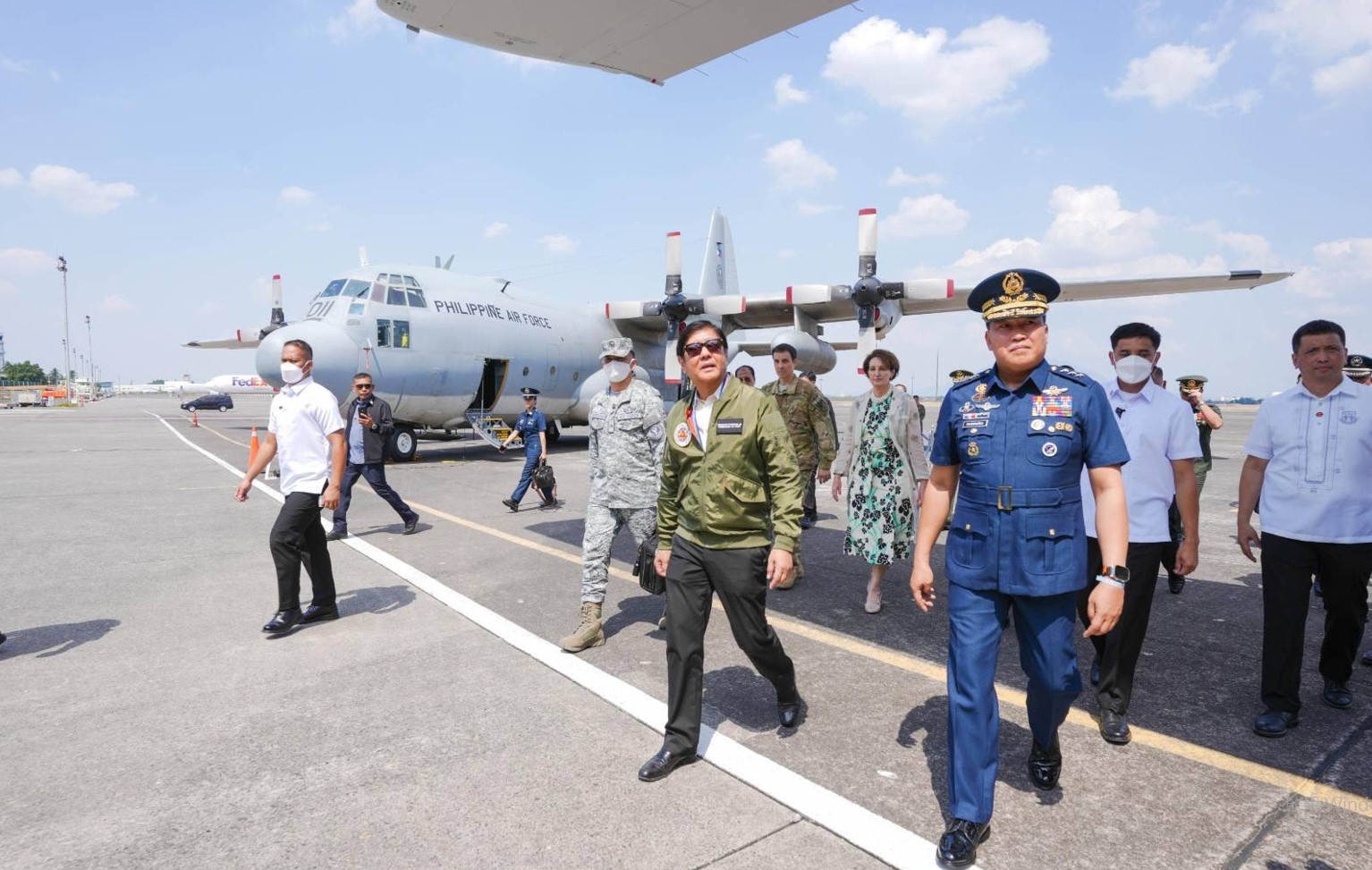Dodging the COVID Bullet: How Vaccine Donations by the US, Japan and Lithuania Saved a Vulnerable Taiwan
The period before Taiwan could begin to produce its own domestic vaccines was the most vulnerable stage for Taiwan. The vaccines donated by the United States, Japan and Lithuania, therefore, played a crucial and stabilizing role. Picture Source: EAP Bureau, June 20, 2021, Twitter, https://twitter.com/USAsiaPacific/status/1406583049278590976/photo/1.
Prospects & Perspectives 2021 No. 33
Dodging the COVID Bullet: How Vaccine Donations by the US, Japan and Lithuania Saved a Vulnerable Taiwan
Cheng-yi Lin
Research Fellow, Institute of European and American Studie Academia Sinica
July 7 2021
Taiwan has been in a Level 3 semi-lockdown since experiencing its first serious COVID-19 outbreak in May. Racing against time to roll out its domestic vaccine, and facing a bottleneck as global supplies cannot meet demand, Taiwan has benefited from the largesse of the United States, Japan, and Lithuania, which announced donations of nearly 5 million vaccine doses to Taiwan over the past month. Deliveries of vaccines from the United States and Japan have already taken place, while those from Lithuania are expected to arrive in September. Those vaccines have made it possible for the Taiwanese health authorities to immediately vaccinate high-risk groups and assuage fears within society.
China, meanwhile, has also signaled its intention to donate vaccines to Taiwan. However, having suspended semiofficial communication channels with Taipei since 2016, and using its own vaccines to blackmail some of Taiwan’s diplomatic allies while opposing other countries’ donating vaccines to Taiwan, Beijing has made it impossible for Taiwan to accept China’s offer.
Compared with China, Russia, and European Union countries, exports or donations of vaccines from the United States were last. In mid-May, President Joe Biden declared that the United States would become the global “arsenal of vaccines” against COVID-19, a direct reference to the United States as the “arsenal of democracy” during World War II. The Biden-Harris administration also proposed to exempt vaccine patent rights through the World Trade Organization (WTO), and pledged to donate US$4 billion to COVAX, a global vaccine procurement initiative.
President Biden has pledged 60 million doses of the AstraZeneca (AZ) vaccine, plus 20 million doses of the Pfizer and Moderna vaccines. Of the total 80 million vaccines, 75%, or 60 million doses, will be provided to COVAX for distribution, and the remaining 25% will be transferred directly to countries where the United States considers the need to be urgent. Two-and-a-half million of those doses, for example, were sent to Taiwan.
The U.S. government regards Taiwan as a leading democracy, a major economy, and a security partner. Amid the extremely high demand for vaccines from the United States, Taiwan’s official diplomatic allies in Latin America have expressed the hope that Taipei will assist them in securing vaccines from Washington, D.C., as soon as possible. Washington, however, has had to prioritize, as it does not have enough vaccines to meet the demand. The fact that Taiwan was able to obtain assistance from the United States within such a short period of time underscores the rock-solid nature of relations between the two countries.
China’s “vaccine diplomacy” efforts were launched much earlier than the United States’ and also targeted, among others, Taiwan’s diplomatic allies. It did this to achieve three main goals: to improve China’s image, interfere with Taiwan’s diplomatic relations, and undermine United States influence in its Latin American backyard.
At the end of June, the Tsai Ing-wen administration and the United States government resumed the Taiwan-U.S. Trade and Investment Framework Agreement (TIFA) talks after a five-year hiatus. President Tsai has underscored the urgency within the framework of the TIFA negotiations of “substantial cooperation to simplify the import and export procedures of vaccines and other medical supplies.” In her view, the earlier the COVID-19 outbreak can be brought under control in Taiwan, the quicker its potential impact on the nation’s economy will be addressed, which in turn would make it easier for Taiwan to contribute more to peace and prosperity in the Indo-Pacific region.
U.S. Secretary of Commerce Gina Raimondo has also revealed that during discussions, Mark Liu, the chairman of Taiwan Semiconductor Manufacturing Co. (TSMC), had asked for assistance from the U.S. in obtaining COVID-19 vaccines. News of the alleged request led international observers to speculate that Taiwan was using semiconductors as leverage for the procurement of vaccines. Responding to those allegations, White House spokesperson Jen Psaki told reporters: “There should not be that suggestion,” adding that Taiwan was “being cut off from access to vaccines. So that was a factor.” Psaki was presumably referring to Beijing’s efforts to prevent Taiwan from participating in the World Health Assembly (WHA) and to securing access to vaccines from other countries, as the BioNTech/Shanghai Fosun Pharmaceutical controversy indicates. Additionally, China has used “vaccine diplomacy” to constrain Taiwan’s diplomatic relations, and utilized disinformation to interfere with vaccination efforts in Taiwan and foster divisions within its society.
Thanks to the timely assistance from its partner, Beijing’s efforts to intimidate Taiwan are unlikely to succeed. The first delivery of donated vaccines—1.24 million doses of AZ from Japan on June 4—occurred thanks to the intervention of Masahisa Sato, convener of the Taiwan Relations Group within the ruling Liberal Democratic Party (LDP), and former prime minister Shinzo Abe. Only one week was necessary to complete the entire process, from the proposal to fulfillment. Taiwan and Vietnam were Japan’s earliest recipients of vaccines, and later each received an additional 1 million doses. Japan has also provided 1 million doses each to Indonesia, Thailand, the Philippines, and Malaysia.
Beijing immediately accused Japan of using vaccine donations to Taiwan as a “tool for political gain,” adding that the Tsai administration regarded Japanese vaccines as a “political tool for self-interest.” In Beijing’s view, China can donate vaccines to Southeast Asian countries, but Japan should be barred from assisting Taiwan. Taiwan, Beijing seems to argue, should seek assistance from China for its vaccines, but instead Taipei has treated Chinese vaccines as a “forbidden domain.”
Lithuania announced on June 22 that it would donate 20,000 doses of vaccine to Taiwan. The Foreign Minister of Lithuania, Gabrielius Landsbergis, stated on Twitter that “Freedom-loving people should look out for each other.” Lithuania, a member of the European Union and the North Atlantic Treaty Organization (NATO), withdrew from the “17+1” group of China and Central and Eastern European countries in March, and has announced plans to set up a representative office in Taiwan. Although the donation came at the request of Taiwan’s representative office in Latvia, the gift carries special significance and could compel other democracies to follow suit. Lars Ströman, the political editor of the Swedish newspaper Nerikes Allehanda, for example, has since proposed that his government donate 1 million doses of vaccine to Taiwan.
The period before Taiwan could begin to produce its own domestic vaccines was the most vulnerable stage for Taiwan. The vaccines donated by the United States and Japan, therefore, played a crucial and stabilizing role. Having struck a careful balance between resisting Chinese pressure and not destabilizing the peace in the Taiwan Strait, Taiwan has improved its image worldwide, making it easier for various countries to show their willingness to engage it. Together with President Tsai’s telephone diplomacy and the unflagging efforts of Taiwan’s representatives abroad, mass vaccination was possible in Taiwan. And with that, Taiwan was able to weather the COVID storm when it was at its most vulnerable.

